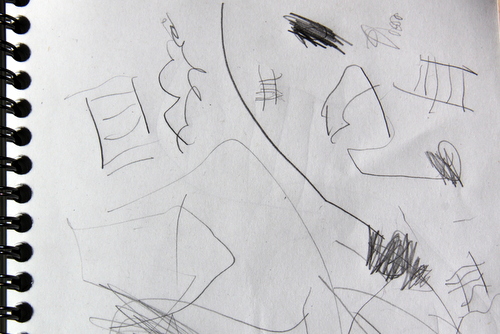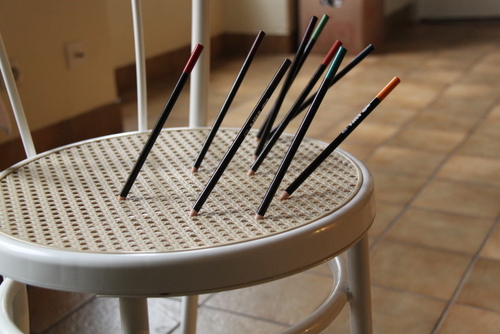Last month’s post on my two-year old starting to read was something of a non-sequitur. It’s been quite a long journey, in fact, as my little Beiruti learnt her letters over a year ago. When it comes to learning of this sort, I’ve been very influenced by a book written in another era entirely by a mother who homeschooled her 11 children in the fifties and sixties. It’s called Anything School Can Do You Can Do Better, by Máire Mullarney. It’s a book I discovered on the shelf at my parents’ place, a remnant from when we kids were taught at home for a few years.
In Mullarney’s time, people apparently thought children were not capable of learning much at all before six or seven, and should only learn from teachers, not from parents who would only impair their education. Now of course, society has swung in the opposite direction. Parents need to be reminded that kids need unstructured play time, and that you can overdo extra-curricular activities. Early learning is so in vogue it is almost passé. The concept has been bought up by big business and turned into a brand. Every toddler out there has a set of stacking cups and a touch-and-feel book. The misconceptions that the author battled with are no longer commonplace. All the same, I found some gems in this book which really hit home.
Máire talks of a stage in the process of learning to read when things fell into place and her children’s delight was such that they would follow her around the house begging: “Listen to me reading!” This book influenced me on several fronts:
- The age for offering letters
- Capitals vs lower case
- Letter sounds vs names
With regard to the first point, the author discusses how children have a phase or period of opportunity when they are particularly interested in a certain skill. That may come before they go to school. Learning should be a question of offering a chance to a child. If the time is right they will jump right in. If they are uninterested, put it aside and only bring it out later. Like the author, I offered my Beiruti her first letters at 13 months. She fell in love and knew them all by 16 months.
This argument swings both ways because it also means going at the child’s pace and not rushing them. More about that later.
The other argument for an early introduction that struck home to me was that of suitability. What kind of story book could you offer a five- or six-year old that is just beginning to learn to read which would actually be interesting to him/her? Basic phrases like “a big box on a mat”, accessible to a novice reader, are fun for a two- or three-year old, but rather uninspiring for the runaway imagination of older kids.
I went to school aged 5 and 1/2, and I would have been thoroughly bored if all I could read were phrases that simple. The English language is partly to blame. Bear in mind that the complexity of English spelling means that even a word like “the” must wait for phase two in the learning process (in phonetic reading, at least). Fortunately for me, I had been taught to read at home, so when I did go to school, I was allowed to choose what I pleased from the bookshelf.
I wanted my daughter to take the same pleasure in reading as the author’s children did, indeed as I did. When she comes tugging at my sleeve, saying, “Please mummy, I want more words,” meaning she wants me to write her a word to sound out, I know things are going the right way.

